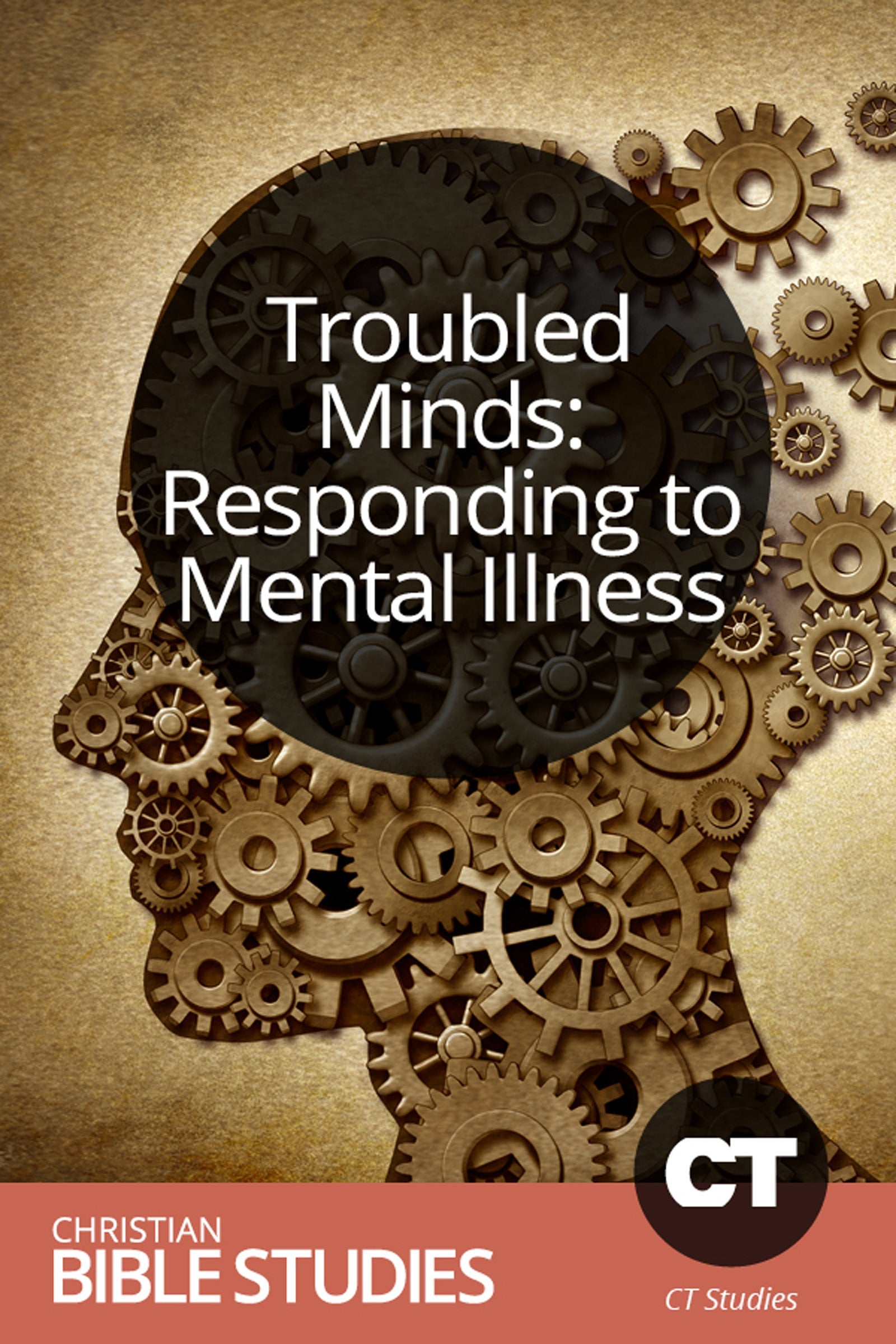Description
Mental illness is far more prevalent than many realize. With one in four adults struggling with mental illness each year, there's no doubt that there are people in our churches who desperately need love and support. Unfortunately, the church hasn't always done a great job of ministering to those affected by mental illness—either their own or a loved one's illness. But it doesn't have to be that way. This Bible study explores mental illness and what the church can do to help. It also helps clear up common myths and begins to put the stigma of mental illness in the past.
Session One
A Christian Response to Mental Illness
The right action starts with the right attitude.
Psalm 139; Matthew 9:35-38; 14:13-21; John 13:33-35; 15:9-17; Romans 7:14-25
Mental illness is a reality of life, and churches are often at the front lines of mental health care. While church leaders and other Christians may not realize this, people regularly approach the church because they need help in dealing with the symptoms of mental illness—their own or someone else's. We need to be ready to respond to people who need us, and this response starts with considering mental illness from a Christian point of view. This study will help you consider what the Bible's teachings show us about mental illness.
Session Two
Why So Much Suffering?
Christians can find hope and meaning in mental illness and other hardships.
Numbers 21:4-9; John 3:13-17; Romans 5:12-17; 8:19-23; 8:35-38
Why do we suffer? This question isn't easy to answer, but it doesn't have to threaten our faith. One of the reasons mental illness and other forms of suffering feel like threats to faith is because many Christians have bought into the philosophy (knowingly or unknowingly) that we shouldn't suffer in this life, that it's normal to be happy and healthy all the time. In this study, a look at Scripture will show us a different perspective.
Session Three
Mental Illness and the Church's Responsibility
We are part of the solution to this health crisis.
1 Corinthians 1:18-25; 13:1-13; 2 Corinthians 2:14-16
The church can't afford to ignore mental illness. Mental illness is so common, it affects nearly everyone. And responding to suffering of all kinds is part of the work we are called to do. As people called to spread love and hope, we must step out and offer what only the people of God can offer. This study will help your group consider the church's role in healing and offering hope.
Session Four
Shining Light on Stigma
Christians must replace false beliefs and stereotypes about mental illness with truth. 1 Kings 19:3-4; Jonah 4; Matthew 23:1-4; Mark 5:1-20; Luke 13:1-5; John 9:1-3; 2 Timothy 1:3-7
One of the hallmarks of God's people should be our commitment to truth. While we may not always agree on all aspects of what is true, we can be united in our dedication to pursue truth rather than hide away in fear or sleep under a blanket of wishful thinking. The stigma attached to mental illness is based in both fear and misinformation. This study will challenge Christians to battle that stigma with a sober look at what the Bible teaches.
Session Five
The Church Is Called to Help with Mental Illness
Pursuing our God-given mission means helping hurting people.
Matthew 5:13-16; 1 Corinthians 12:12-26; Colossians 3:12-17
Many people who sit in church pews on Sunday mornings don't spend a lot of time thinking about the church's mission and purpose. Some believe these questions are for professional pastors and theologians to consider. But the church's mission is every Christian's mission, and it should guide the life of everyone who calls Jesus Lord. This study will shed biblical light on the church's mission and help your group consider how that mission applies to relationships with people affected by mental illness.
Session Six
God Can Redeem Mental Illness
We have more than one reason for hope, even when life seems hopeless.
2 Corinthians 1:3-7; 4:13-18; Ephesians 2:1-10; James 1:2-4
When it comes to a topic like mental illness, it's easy to focus on pain and struggle and to lose sight of the good work God can do in any circumstance. Believing in God's redemption sometimes requires tremendous trust in the midst of overwhelming pain. But we don't trust for no reason—we can see examples of God's redemption all around us if we're paying attention. This study will help us consider how God redeems mental illness.
This study is based on Troubled Minds by Amy Simpson, and can be used with or without the accompanying book.
Total number of pages—41 pages

